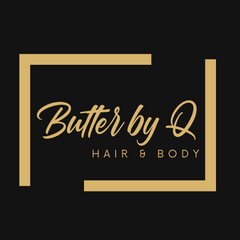New Study Links Ingredients in Hair and Skin Products to Cancer

We get it — ain't nobody got time to be reading through an endless list of ingredients. There is dihodroxysomething, phenalbabygotback, and bloopy bloop. While it's almost impossible to read through, pronounce, and understand all of the ingredients in your favorite hair care brand or skincare brand, you should be on red alert when it comes to certain chemicals.
How red? Recent research has discovered a link between hair straighteners and ovarian cancer. And this can be especially troubling for Black and African American women because we use straighteners tame our natural curls more than others. This same team previously discovered that straighteners and permanent hair dye can increase breast cancer risk.
Because of this, you should avoid certain skincare ingredients like the plague…the bubonic one. Let's take a closer look at how hair care and skin care products may be linked to cancer and a few ingredients that you should avoid like "Girl bye!"
Got unique hair, skin, and beard goals? Take a quick quiz for personalized suggestions.
Hair Straightening Products Linked to Uterine Cancer

According to research by the National Institutes of Health, women who used hair straightening products were at a higher risk for developing uterine cancer when compared to those who didn't. The Sister Study included 33,497 women aged between 35 - 74 that were followed for nearly 11 years.
During this period, 378 instances of uterine cancer were diagnosed. The researchers found that those women who reported more frequent use of hair straightening products — over four times in the previous year — were twice as likely to develop uterine cancer.
Head of the National Institute of Environmental Health Sciences (NIEHS), Alexandra White, Ph.D. estimates that around 1.64% of women who never used hair straighteners would develop uterine cancer by 70. This percentage increases significantly to 4.05% for those who are frequent users of hair straighteners.
Black Women May Be More Exposed Due to Higher Rates of Hair Straightener Use

An estimated 60% of the participants in the study who reported using hair straighteners self-identified as Black Women. This makes the adverse health effects of using hair straighteners even greater for African American and Black women because we tend to use straighteners more.
The study's findings are consistent with previous studies highlighting how straighteners can increase the likelihood of hormone-related cancers in women.
What Hair Care & Straightening Ingredients Are Linked to Cancer?

Unfortunately, researchers didn't collect information on the specific ingredients or brands women in the study used. However, researchers did note that many chemicals commonly found in hair straighteners could contribute to increased uterine cancer:
-
Parabens
-
Bisphenol A
-
Formaldehyde
-
Metals
The chemical exposure for hair straightening products may be even more concerning than other personal care products due to the high rate scalp absorption. This rate of absorption can be even higher because of the lesions and burns that are caused by straighteners.
Uterine Cancer Is Rare…But on the Rise Among Black Women
Uterine cancer represents around 3% of all new cancer cases. However, it's the most common cancer impacting the female reproductive system. In 2022, an estimated 65,950 new cases of uterine cancer were diagnosed. Studies suggest uterine cancer incidence rates are increasing in the U.S. — especially among Black women.
Sis…Just Say "Girl Bye!" to These Black Hair & Skin Care Product Ingredients Linked to Cancer

In addition to hair straightening chemicals, many ingredients, unfortunately, used in your favorite skin care products may be linked to cancer. Make sure you avoid these common black skin care and hair care products that are believed to cause cancer. .
Petrolatum Is a Common Moisturizer Ingredient
As the name suggests, petrolatum is a byproduct of petroleum jelly. Throughout the community, petroleum jelly has been a staple: think shiny face on a cold morning. However, when petrolatum isn't refined properly, it can be contaminated with polycyclic aromatic hydrocarbons (PAHs) that are possible carcinogens. Even so, this petrolatum is used in several skin care products. And exposure to high levels of PAH has been linked to an increased risk of breast cancer. To avoid this, you should avoid products that have petrolatum.
Benzophenone Is Used in Moisturizers and Lip Balms
Often used to protect against UV light, benzophenone is commonly used in moisturizers, sunscreens, and lip balms. However, studies have shown this chemical can cause different cancerous tumors.
Parabens
Parabens are a widespread preservative that is commonly used in skincare products. Parabens may influence the development of malignant melanoma. You'll be more likely to find parabens in water-based products.
Diethanolamine (DEA)
With "diet" in its name, you know it's evil. And we will not even touch on "DEA". In either case, this substance is an additive used to make skincare products nice and sudsy or creamy.
However, exposure to high doses has been linked to liver cancers in mice.
Simply put, you should avoid these. DEAs are commonly found in cleansers and soaps. In fact, you should be on the extra-special lookout for lotions, foundations, and shaving creams that have DEA, TEA, or MEA on the labels.
PEGs
PEGs, which aren't required to be listed on labels, are used for their foaming, thinning, thickening, and holding moisture abilities. PEG (aka 1.4-dioxane) is a byproduct of the creation of certain skincare ingredients. This stuff is a known animal carcinogen.
Stay Forever Young with Formaldehyde
Okay, before you go wilding out, you will not (should not) find formaldehyde in your hair care and skin care products. However, you may find these formaldehyde cousins and children:
-
Methenamine
-
Imidazoilidnyl urea
-
DMDM hydantoin
-
Diazolidinyl urea
These ingredients will slowly leak formaldehyde —a known carcinogen linked to leukemia — into your skin.
BHA & BHT
Butylated hydroxyanisole (BHA) and butylated hydroxytoluene (BHA) are both preservatives used to extend the shelf life of products. However, both of these preservatives are notorious for causing allergic reactions in the skin. At the same time, these substances are classified by the International Agency for Research on Cancer as potential carcinogens. Simply put, if your skin care products have BHA or BHT, store it in the trash.
That Smells Like Trouble! Beware of Fragrance

I know…we all love to smell good. But at what cost? Far too often, manufacturers can use a blanket term like "fragrance" to hide and mask things that can be harmful. In fact, "fragrance" can be a blanket label that is used to hide a staggering 3,000 different, potentially harmful chemicals. Don't believe us? Let the Food and Drug Administration tell it!
Keep It Simple. Keep It Safe. Keep it Natural with Butter by Q

We get it — ain't nobody got time to be reading through an endless list of ingredients. But sis, your health and safety can hinge on your ability to avoid certain ingredients. Fortunately, when you choose Butter by Q, you don't have to.
At Butter by Q, we manufacture 100% natural products from the best ingredients Mother Nature has to offer. We skip all of the chemicals, artificial fragrances, perfumes, dyes, and preservatives. And our products are versatile enough to be used on your hair, face, and beard.
Whether you have an itchy, dandruff-ridden beard or just want the best moisturizer for your high or low-porosity hair, Butter by Q's all-natural products can help.
Need help deciding which product is best for you? We've got you covered with a free quiz. Answer a few quick questions to receive personalized suggestions based on your unique hair, skin, and beard goals.

